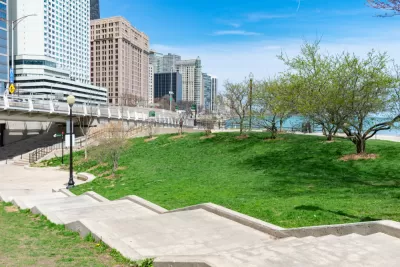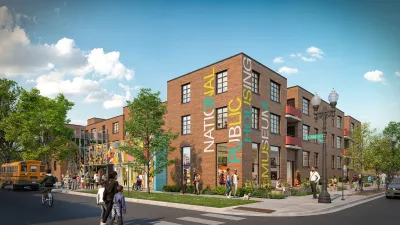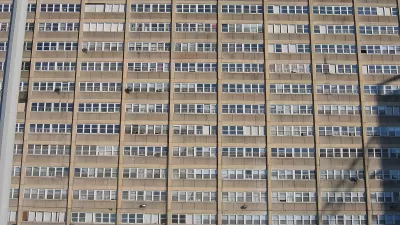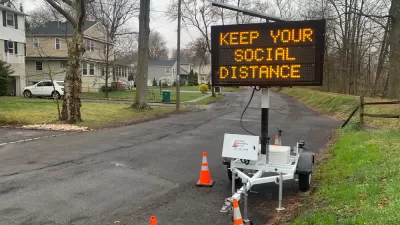The planned National Public Housing Museum, expected to open in 2021, will draw attention to a highly contested subject and connect to the relevance provided by contemporary anxieties about housing.

Zach Mortice reports on the organizational principles behind the National Public Housing Museum, expected to open in 2021 on the Near West Side of Chicago.
Mortice's sources for insight into the creation and expected direction for the museum include Crystal Palmer, a former public housing resident and vice chair of the museum's board, and Lisa Lee, the museum’s executive director.
The museum, which is expected to be unabashedly activist, will be located inside the last remaining building of the Jane Addams Homes, built in the 1930s.
"It took 10 years of administrative wrangling to get the building from the Chicago Housing Authority (CHA), and the museum hopes to open in 2021,"according to Mortice. "Since 2010, however, it has been mounting exhibitions at a variety of other venues."
A lot more about the design of the museum, and its expected exhibitions, can be found in the source article.
FULL STORY: The National Public Housing Museum Eyes a 2021 Opening

Maui's Vacation Rental Debate Turns Ugly
Verbal attacks, misinformation campaigns and fistfights plague a high-stakes debate to convert thousands of vacation rentals into long-term housing.

Planetizen Federal Action Tracker
A weekly monitor of how Trump’s orders and actions are impacting planners and planning in America.

San Francisco Suspends Traffic Calming Amidst Record Deaths
Citing “a challenging fiscal landscape,” the city will cease the program on the heels of 42 traffic deaths, including 24 pedestrians.

Detroit Says Problems With Property Tax Assessments are Fixed. Advocates Disagree.
With higher-valued properties under assessed and lower-valued properties over assessed, advocates say there's still a problem with Detroit's property tax system.

Defunct Pittsburgh Power Plant to Become Residential Tower
A decommissioned steam heat plant will be redeveloped into almost 100 affordable housing units.

Trump Prompts Restructuring of Transportation Research Board in “Unprecedented Overreach”
The TRB has eliminated more than half of its committees including those focused on climate, equity, and cities.
Urban Design for Planners 1: Software Tools
This six-course series explores essential urban design concepts using open source software and equips planners with the tools they need to participate fully in the urban design process.
Planning for Universal Design
Learn the tools for implementing Universal Design in planning regulations.
Heyer Gruel & Associates PA
JM Goldson LLC
Custer County Colorado
City of Camden Redevelopment Agency
City of Astoria
Transportation Research & Education Center (TREC) at Portland State University
Jefferson Parish Government
Camden Redevelopment Agency
City of Claremont





























